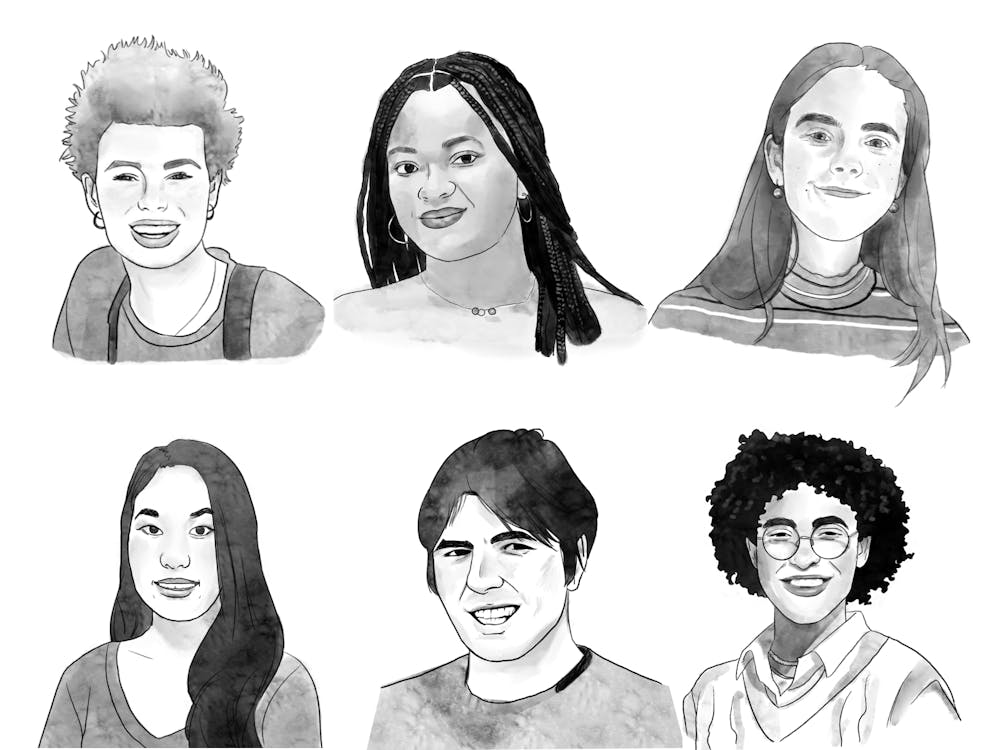A mob of students spilled out of Frist Campus Center and walked down Prospect Avenue. A few peeled off of the main group one by one as they passed by the succession of elegant mansions. Sharp wind gusts blew snow flurries from the rolling gray storm clouds above. Despite the dismal weather, students chatted cheerfully while lining up in front of the eating clubs.
They were waiting for “Bicker” to begin, the annual Princeton tradition where sophomores undergo games and interviews to gain admittance to the six selective eating clubs: Ivy Club, Tiger Inn, University Cottage Club, Princeton Tower Club, Cannon Dial Elm Club, and the Cap and Gown Club.
I joined these students to assess the system's integrity from the inside by bickering Ivy and Tower. When Bicker ended, I compared my observations with fellow sophomores who bickered the other clubs and reached some conclusions.
In an ideal world, Bicker wouldn’t exist because students shouldn’t judge their peers in such a manner. But if it’s here to stay in the short-term — due to its status as an unalterable Princeton tradition — then all of the eating clubs could generally improve Bicker so that it places less pressure on students and is more welcoming to those with minimal prior experience on the Street.
First, Bicker needs to be open to everyone — from veteran Street-goers to those who haven’t stepped foot in these mansions. This doesn't just mean that anyone can sign up to Bicker. It means that anyone can answer the interview questions, even if he or she has never been to that eating club before.
There’s no universal reason why students join any particular eating club. Some do it to eat with their friends or because they like the club’s parties. Others want a different environment and to make new friends. Eating clubs should be cognizant of all bickerees’ motivations when designing Bicker.
Cap and Gown's Interclub Council page says, "Bicker at Cap is a fun-loving, welcoming process," and Ivy's Bicker website says, "Ivy bicker is designed so that anyone who wants to bicker ivy [sic] may do so, regardless of previous affiliation with the club."
But this isn't the case once the interview-style conversations begin. When students with no prior club experiences are asked, "Who do you know in Ivy?" or, "What's your favorite Cap memory?" it sends the message that they're not welcome unless they already know everything about, and everyone in, the club, especially when these are the first questions in an interview.
Questions like these defy Bicker's purpose. Bicker, as plainly stated by Ivy, is supposed to be "a good and fun way for ivy [sic] members to get to know you." If Bicker is supposed to assess students' personalities; it shouldn’t matter who they know in Ivy, what their favorite Tower party is, or whether they have a Cottage "crush. " Prior experience at a club has no bearing whatsoever on one's personality — which is what the clubs claim to be valuing. If those are the claims about the process, then these types of questions shouldn’t be asked during Bicker.
Second, eating clubs should assess students more fairly by requiring that each bickeree have an equal number of interviews with different club members. TI, Cannon, and Cottage have systems without a set number of interviews, and they vary erratically in length. While Tower mandates that students attend at least three Bicker sessions, students can meet more members by going to additional sessions.
These systems give students an unequal number of members who can vouch for or against them. Should someone get stuck with a member who likes to talk a lot, it puts him at a disadvantage in comparison to other bickerees who have more interviews.


By contrast, Ivy's standard ten interview system is egalitarian. It ensures that all bickerees meet the same number of members. Their system also prolongs interviews so that they move beyond superficial impressions and into genuine conversations. Cap has a more open alternative to Ivy. A member told me that it employs a numerical queue for the bickerees to meet members equitably. As the other eating clubs reassess their Bicker processes, they ought to consider standardizing the number of interviews.
Officers from TI, Cap, Cottage, and Cannon had not responded to requests for verification or comment at the time of publishing.
Third, the practice of double bicker — when two club members interview two bickerees simultaneously (not to be confused with Double Bicker where a sophomore bickers two eating clubs) — should end. Invariably, the double bickers that other sophomore sources and I experienced all devolved into one of two outcomes. Either the bickerees competed to see who could be the “coolest,” or the members talked to each other the entire time and heard little from the bickerees.
Double bicker doesn't help anyone. For the bickerees, it puts them in a high-pressure socially awkward situation where they're being directly compared to a classmate. Conversely, club members can't accurately assess the bickerees' personalities because they are hindered by either the other bickeree or themselves. While it’s true that group discussions are important when eating meals together, it’s impossible to fairly assess how bickerees converse in such a setting because of the unique social pressures under which they are acting in Bicker.
Bicker is — and always will be — an imperfect system. It can, however, be improved so that students can compete on a level playing field. When Bicker returns again this fall, hopefully the eating clubs will make it fairer and more open for all students.
This is the first in a series of articles about improving Princeton's eating clubs.
Liam O’Connor is a sophomore from Wyoming, Del. He can be reached at lpo@princeton.edu.








